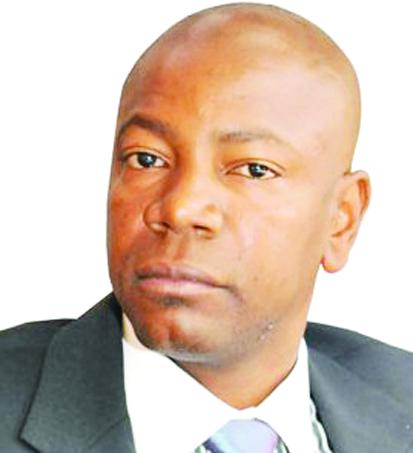
The developmental state: Identity crisis resolved!

Professor Joseph Stiglitz’s visit to Namibia serves to shift our paradigm and resolve an identity crisis of economic ideology which has haunted many emerging economies across the world. In a nutshell, self-serving proponents of the crude form of capitalism which we have emulated for decades marketed the ideology as a global best practice when it was in fact fundamentally flawed.
Through institutions like the IMF and the World Bank, the ideology was forced on emerging economies in exchange for funding. Text books were written and curricula based on it, essentially it was taught as a macro-economic ideal which must be pursued to achieve developed economy status.
Unfortunately, naïve needy developing economies subscribed to this erroneous school of thought and growth was derailed in much of Africa as a result of prescribed Economic Structural Adjustment Programs (ESAPs). My unanswered question to Professor Stiglitz was whether the global development banks were sleeping at the wheel or if this was an act of intentional economic sabotage by special interest groups (as the conspiracy theory goes). The key take-home point from the series of public lectures was that it is critical for economies to prioritise the development of internal research capacity so that they may be able to self-evaluate, feed policy decisions and effectively assess external recommendations.
I recall the counter intuitive nature of our teachings during my final year as an economics student. Even then with only shreds of theoretical knowledge and absolutely no experience as a practising economist, I struggled with accepting the prescribed ideology because my own observations based on our society insisted that it was counter-productive, particularly so since we held the short end of the stick. We were so focused on mastering the existing body of knowledge in the field of economics that we did not adequately interrogate its relevance in our environment. Alternative views were branded as socialist and treated with contempt.
And so began my personal economic identity crisis, something which I now understand haunted all emerging governments and has systematically impeded effective policy implementation. You see there was a disconnect between what we knew we needed to do, what “development” agencies required us to do and the medley of at times conflicting policies with which we attempted to achieve both. One of the principal reasons I have been a fan of the last two budgets is that the government boldly chose its position and outlined its priorities; Harambee now presents a comprehensive action plan based on the selected position and priorities.
It is important to acknowledge that the decades of brainwashing have had a profound effect on our society and its values and even though crude capitalism has been discredited globally; it will take continued conscious effort to adjust our mindsets. For example I would like to cite the plethora of economists who have criticised the government for its social stance. It was inconceivable to hear Namibian professionals condemning the increase in old age pensions, stepping in to support industry in its quest for light-touch regulation or furiously lobbying against that infamous windfall tax on mining companies.
Stiglitz highlighted the need to be aware of special interest groups and that in the absence of a focused homegrown industrial policy, these groups will formulate one for us with the intention of securing their own interests.
The natural resource endowment should only be extracted in order for proceeds to be invested above the ground for the benefit of the country’s citizenry.
Mineral extraction for the sole purpose of consumption smacks of folly and deprives our children’s children their rightful inheritance. Stiglitz re-iterated that as far as mineral extraction is concerned we (commodity exporting countries) hold the balance of power in negotiations and we should not sell our assets below their intrinsic value just because we are in a hurry to extract and reflect short-term growth in GDP.
According to Stiglitz, economic theory must be reconsidered and text books have to be re-written, the way we view growth must change for there can be no sustainable growth if we do not actively pursue income equality through inclusive economic participation.










































